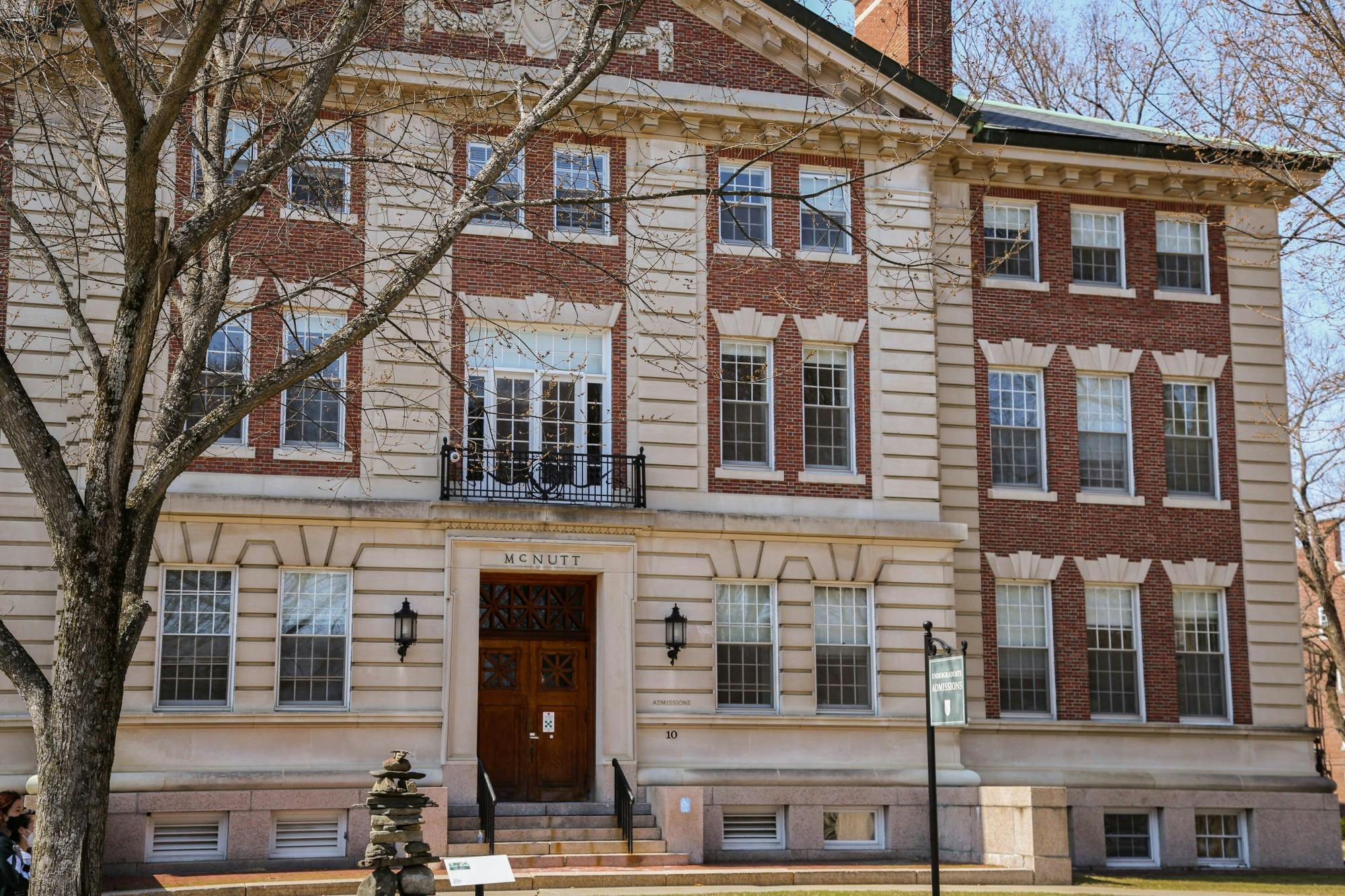On Friday evening, 530 members of the Class of 2026 learned that they would be coming to Hanover next fall, the College announced on Monday in a Dartmouth News article. Dartmouth selected them from an application pool of 2,633 early decision applicants. Additionally, 30 students were admitted through the QuestBridge program earlier this month, bringing the total number of known soon-to-be freshmen to 560.
This year’s ED pool roughly sustained last year’s historic 29% surge in early applications over 2019. Although application numbers, which stood at 2,664 in 2020, fell slightly, the College maintained a 21% acceptance rate. A record-high percentage of admittees represent diverse geographic backgrounds, with 57% of acceptances living in the South, West and abroad.
Vice provost for enrollment and dean of admissions and financial aid Lee Coffin said that although the admissions office has restored a limited number of campus tours in the fall, its outreach efforts are still dominated by virtual resources, and admissions officers are not traveling to high schools.
“I think in the future, we will probably offer both in-person and virtual [engagement options] so that geography doesn’t become a barrier for people to meet us,” Coffin said.
Of the 560 admits, 17% are first generation college students, 16% live outside of the U.S. and 40% of admitted U.S. citizens and permanent residents are students of color. Admitted students represent 49 U.S. states, Washington, D.C. and Guam and 37 countries — an increase over last year’s 44 U.S. states and territories and 36 countries.
Coffin confirmed that the College is continuing its test-optional policy this year, a measure first put into place during the onset of the COVID-19 pandemic for the Class of 2025. He added that the College has not yet decided whether to extend the policy to the Class of 2027.
Of the applicants who reported a class rank, 93% were ranked in the top 10% of their class, and a record 22% are projected to graduate as valedictorian or salutatorian. 54% of admittees come from public or charter high schools, also a record.
Additionally 13% of the incoming early decision cohort are children of Dartmouth alumni, and 22% are recruited athletes, according to Coffin. In 2019 and 2020, recruits made up 25% and 18% of admitted early decision students, respectively. Coffin added that Dartmouth’s targeted athletic cohort would add up to 197 students by the end of this year’s admissions cycle.
The overall decrease in athletic admissions follows the College’s announcement last summer that it would cut five athletic teams in order to reduce athletic recruitment in admissions by 10%. Dartmouth reinstated the five athletic teams in January, citing Title IX compliance issues.
Dartmouth also admitted a record 30 students through QuestBridge, a nonprofit that pairs high-achieving students from low-income backgrounds with top colleges and universities, from a pool of over 1,200 applicants. Dartmouth’s early decision cohorts included 25 QuestBridge matches in the Class of 2025 and 21 in the Class of 2024.
Two changes in financial aid policies are in effect for this year’s admissions cycle. In October, Dartmouth eliminated the expected parent contribution for families making up to $65,000 when calculating undergraduate financial aid. Approximately 100 families among the early decision admitted students are qualified to have the family contribution waived — the first class to be accepted with this zero-contribution policy in place. According to Lee, this policy added “a couple of thousand or more” to the average student’s scholarships.
Additionally, in June, the College announced that beginning with members of the Class of 2026, students from families with an annual household income of $125,000 or less will qualify for full-tuition scholarships without loans. Lee noted that the average scholarship among early decision admits who received financial aid was $62,896 — a record that will likely increase as the financial aid office finalizes the award letters this week.
Lee said that given only 30 students admitted to the Class of 2025 chose to take a gap year, he expects that the College will adhere to its target of enrolling 1,150 students next fall.




